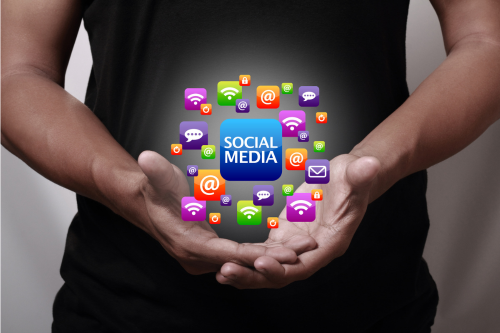Social media isn’t just where we share memes, scroll through endless videos, or keep up with the latest trends—it’s also become a powerful tool in the professional world. Employers will Google you. Recruiters will check your online presence. And depending on how you use it, your social media can either help you stand out… or silently sabotage your chances.
So here’s the big question: should you actually put your social media handles on your resume? The answer isn’t as simple as “yes” or “no.” It depends on the platform, your industry, and how you’re using your accounts. A polished LinkedIn profile? Probably a yes. A private Instagram full of brunch pics? Probably a no.
In this article, we’ll break down the pros and cons of including social media on your resume, the platforms that can actually boost your chances, and the situations where leaving it off is the smarter move. By the end, you’ll know exactly how to make your online presence work for you—not against you.
🔑 Key Takeaways
- Social media can boost your resume when it highlights your skills, creativity, or professional brand (think LinkedIn, GitHub, portfolios).
- Not every platform belongs—skip profiles that are irrelevant, outdated, or too personal.
- Quality over quantity: one polished profile beats three half-finished ones.
- Privacy matters—don’t share handles you wouldn’t want an employer scrolling through.
- Be intentional: only include profiles that make you look like a stronger candidate for this specific job.
Should You Put Social Media on Your Resume? The Pros & Cons
Adding social media to your resume is one of those “it depends” moves. Done right, it can show off your skills, personality, and network. Done wrong, it can distract, confuse, or even hurt your chances. Let’s break down the real pros and cons in today’s job market.
✅ The Pros
-
Showcase Your Work Beyond the Page
A resume is one page. Your online presence is endless. Linking to a polished LinkedIn, GitHub, portfolio site, or even a professional Instagram can give recruiters a deeper look at your skills, creativity, and impact. -
Highlight Your Personal Brand
Employers aren’t just hiring skills—they’re hiring people. A consistent, professional online presence shows that you understand your industry, stay current, and know how to present yourself in a digital-first world. -
Prove You’re Active and Engaged
Whether it’s sharing insights on LinkedIn, contributing to open-source projects on GitHub, or posting tutorials on YouTube, your activity online can signal curiosity, initiative, and thought leadership. -
Expand Your Networking Opportunities
Social media makes it easier than ever to connect directly with recruiters, hiring managers, and industry peers. Including a handle can open doors before you even step into an interview.
❌ The Cons
-
Irrelevance Can Backfire
If your profile doesn’t add value for the role you’re applying for, it’s just noise. A hiring manager doesn’t need your TikTok handle unless you’re applying for a content creator role. -
Privacy and Oversharing Risks
Once you share a handle, you’re inviting employers to explore your content. If your account mixes personal and professional, you risk blurring lines in ways that may not serve you. -
Unpolished Profiles Hurt More Than Help
An outdated LinkedIn or half-finished GitHub repo can make you look careless. If you’re going to include a profile, it needs to be active, relevant, and professional. -
Bias and Misinterpretation
Like it or not, employers are human. Certain opinions, photos, or even the way you present yourself online can trigger unconscious bias. If you’re not confident your profile strengthens your candidacy, leave it off.
👉 Bottom line: social media on your resume isn’t about showing everything—it’s about showing the right things. If a platform strengthens your case as a candidate, include it. If it doesn’t, skip it.
The Platforms That Can Actually Boost Your Chances
Not all social media is created equal when it comes to resumes. Some platforms are built for professional visibility, while others are better left for weekend scrolls. Here are the ones that can actually work for you:
-
LinkedIn (Non-Negotiable)
This one’s a no-brainer. LinkedIn is essentially your digital resume, networking hub, and personal branding platform rolled into one. Employers expect to see it, and if it’s polished—complete with a professional photo, updated experience, and a few recommendations—it can tip the scales in your favor. -
GitHub (For Tech Roles)
If you’re in software development, data science, or anything technical, GitHub is gold. It’s living proof of your skills, problem-solving, and creativity. A recruiter can see not just what you’ve built, but how you think. -
Portfolio Sites, Blogs, or YouTube Channels (For Creatives & Educators)
Designers, writers, photographers, videographers, even educators—your work shines when people can see it. A well-curated portfolio or channel gives employers tangible proof of your talent and style, far beyond bullet points on a resume. -
Twitter/X (If You’re Industry-Active)
This one’s situational. If you use Twitter/X to share insights, join professional conversations, or build thought leadership in your field, it can be a great add-on. If it’s mostly memes and hot takes… maybe not. -
Instagram or TikTok (For Creative & Marketing Roles)
If you’re a content creator, social media manager, or in a visual-first industry, your Instagram or TikTok can double as a portfolio. Just make sure it’s professional, curated, and aligned with the role.
👉 The rule of thumb: if the platform shows off your skills, credibility, or creativity in a way that strengthens your application—it’s worth including.
Situations Where Leaving It Off Is the Smarter Move
Of course, not every profile belongs on your resume. In fact, sometimes it’s better to keep your handles to yourself. Here’s when to hit “delete”:
-
The Profile Isn’t Relevant
If your account doesn’t add value to the role, it’s just extra clutter. A recruiter for an accounting job doesn’t need to see your foodie Instagram. -
It’s Half-Finished or Outdated
Nothing says “I don’t pay attention to detail” like a LinkedIn profile last updated in 2021 or a GitHub with one lonely project. If you can’t polish it, don’t post it. -
It’s Too Personal
Employers don’t need to know about your vacation photos, political debates, or late-night karaoke videos. If your account is more personal than professional, keep it private. -
You’re Concerned About Privacy
Once you share a handle, you’re opening a door. If you’re not comfortable with that level of visibility—or if you prefer to keep a clear line between work and personal life—it’s perfectly fine to leave it off. -
It Could Be Misinterpreted
Even harmless content can sometimes be taken the wrong way. If you have any doubt about whether a post, comment, or photo could be seen as unprofessional, it’s safer to keep the profile off your resume.
👉 The smarter move is always to ask yourself: Does this profile make me look like a stronger candidate for this specific job? If the answer’s anything less than a confident “yes,” leave it off.
Final Thoughts: Keep It Professional, Keep It Strategic
At the end of the day, including social media on your resume isn’t about showing off every profile you’ve ever created—it’s about being intentional. The right platform can highlight your skills, showcase your personality, and even open doors you didn’t know existed. The wrong one can distract, confuse, or hurt your chances.
So before you hit “send” on that application, take a step back and ask yourself: Does this profile strengthen my story as a candidate? If yes, polish it up and include it. If not, leave it off. Simple as that.
And remember—your online presence is part of your personal brand whether you put it on your resume or not. Employers are likely to look you up anyway. The difference is whether you guide them to the best version of you… or leave it up to chance?




